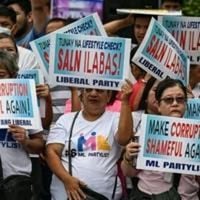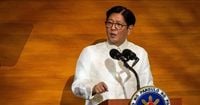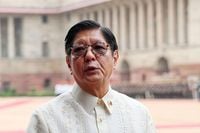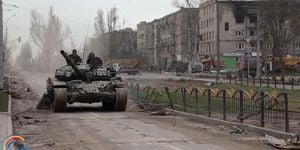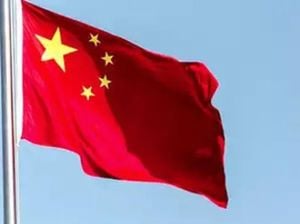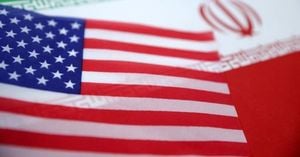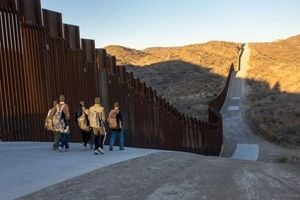In a nation all too familiar with the devastation of typhoons and floods, the Philippines now faces a storm of a different kind: a sweeping corruption scandal involving billions of pesos earmarked for flood-control projects. President Ferdinand Marcos Jr., addressing the nation on September 15, 2025, did not mince words about the gravity of the situation. In a televised briefing, he declared, "Of course, they are enraged, of course they are angry. I am angry. We should all be angry because what is happening is not right."
The scandal centers on the alleged misuse of public funds intended for flood mitigation—projects that, according to government figures, have cost the nation an estimated 545 billion pesos (roughly $9.6 billion) over the past three years. Congressional investigations have uncovered a web of alleged kickbacks implicating legislators, senators, government engineers, and construction companies. The accusations are staggering: substandard or even non-existent projects, huge kickbacks, and lavish lifestyles funded by public money. As Reuters reported, just 15 contractors received a whopping 20% of the total flood-control budget, fueling public outrage over what many see as "excessive corruption."
President Marcos has been unequivocal about his response. He has promised a thorough, independent investigation led by a former Supreme Court justice—an effort he described as an "inflection point" for government transparency and accountability. "There's only one way to do it... they will not be spared," Marcos told the public, emphasizing that even his own relatives and political allies would face scrutiny. "We need to find out how much public money was stolen by these crooks. That's what we need to uncover and fix."
Marcos first brought the scandal to national attention during his State of the Nation address on July 28, 2025, but it was his recent remarks that galvanized public sentiment. The president has not only acknowledged the anger sweeping across the country but has actively encouraged it—within limits. "If I wasn't president, I might be out in the streets with them," he said, voicing support for anti-corruption protests. However, he was quick to add a plea for nonviolence: "You let them know your sentiments, you let them know how they hurt you, how they stole from you, shout at them and do everything, demonstrate, just keep it peaceful."
This call for peaceful protest is particularly notable given the recent violent demonstrations in neighboring countries such as Nepal and Indonesia. In contrast, Philippine rallies have so far remained relatively calm, with most outrage vented online. Still, the mood is shifting. According to the Associated Press, a recent rally at the University of the Philippines drew around 3,000 students—one of the largest gatherings yet. An even bigger protest is planned for September 21, 2025, at a pro-democracy shrine in Manila. The date is loaded with symbolism, coinciding with the anniversary of the 1972 martial law declaration by President Marcos' late father, Ferdinand Marcos Sr.—a period remembered by many as one of the darkest chapters in Philippine history.
Preparations for the upcoming protest are well underway. Police and military forces have been placed on alert, mindful of the potential for unrest. The specter of past "people power" revolts—most famously the 1986 uprising that ousted Marcos Sr.—looms large in the public imagination. At a recent demonstration, one speaker even called on the military to withdraw its support from President Marcos Jr., echoing calls for nonviolent revolution that have shaped the nation's history. However, Defense Secretary Gilberto Teodoro Jr. and military chief of staff Gen. Romeo Brawner Jr. have issued a joint statement reaffirming the military's non-partisan stance and commitment to the constitution. "The 160,000-member military was non-partisan, professional and abides by the constitution through the chain-of-command," they said, pointedly rejecting any suggestion of military intervention.
As the scandal unfolds, the government is taking concrete steps to address both the immediate and systemic issues. President Marcos has already scrapped all flood control projects scheduled for 2026, redirecting the savings to critical sectors such as education, health, and agriculture. This move, he insists, is not about politics but about restoring accountability and transparency to government spending. "Let's not politicize this. It's a matter of simple numbers," Marcos declared. "We need to find out how much public money was stolen by these crooks. That's what we need to uncover and fix."
Civil society has responded with a mix of anger and cautious optimism. Catholic church leaders, business executives, and retired generals have all joined the chorus of voices demanding accountability. Many have taken to social media to vent their frustration, while others are preparing to join the September 21 protest. The planned rally is expected to draw a diverse crowd, from students and activists to ordinary citizens who have grown weary of endemic corruption and the slow pace of reform.
Yet the road ahead is fraught with challenges. Communications Undersecretary Claire Castro has warned against those who might seek to exploit the public's outrage for their own ends, cautioning that "people who have ill intentions and want to destabilize the government" should not be allowed to hijack the movement. President Marcos himself has echoed this sentiment, urging protesters to focus on accountability rather than partisanship. "Express it," he said. "You make your feelings known to these people and make them answerable for the wrongdoings that they have done."
The investigation is already making waves in the political establishment. Televised congressional inquiries have implicated several high-profile figures, including lawmakers and public works officials. The allegations are damning: kickbacks used to finance mansions, luxury cars, and high-stakes casino gambling, all while millions of Filipinos continue to live in poverty. The government is now reviewing thousands of flood mitigation projects to determine which are substandard or outright fraudulent, with President Marcos personally inspecting some of the worst-affected areas, such as Bulacan province north of Manila.
For many Filipinos, the outcome of this investigation will be a litmus test for the Marcos administration's commitment to reform. The president has staked his credibility on a promise to root out corruption, rebuild public trust, and ensure that those responsible—no matter how powerful—are held to account. Whether this marks a true "inflection point" in Philippine governance remains to be seen, but for now, the nation waits, watches, and prepares to make its voice heard.
As the September 21 protest approaches, the Philippines stands at a crossroads. Will this moment become a catalyst for lasting change, or just another chapter in a long saga of scandal and disappointment? Only time will tell, but the resolve of the people—and their president—has rarely been more clear.
